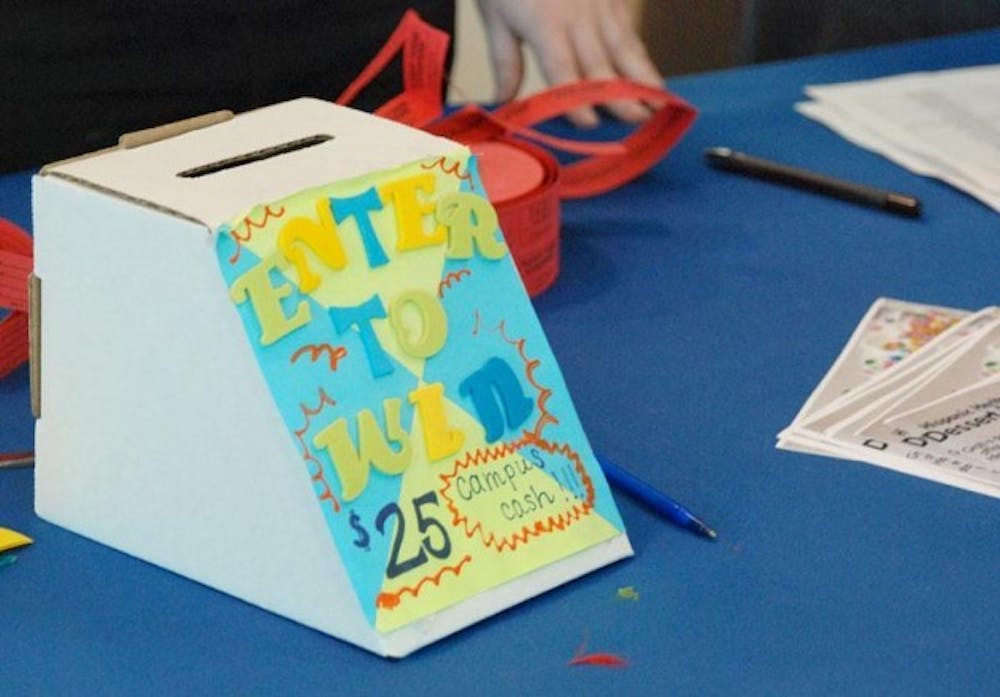It's bad having to buy greasy pizza for lunch every day because it's the only affordable food on campus. It's worse when the mess in the toilet afterwards can't be greeted with the soft touch of some toilet paper.
Ten UB students, who remain anonymous, admit to stealing the wonder-wipes from campus in order to save a few bucks.
"The Commons – they have the softest toilet paper," one student said.
"The Center for the Arts has double-ply," said another.
College is expensive. Textbooks, lab fees, meal plans, rent; students come to school with at least a vague idea of the massive amount of money they'll need to have just to be able to pay for books and food.
But it's the small things that really get to students, those other little expenses that sneak up on one's bank account. Fast food, clothes, restaurants, record stores, bookstores, and bars are all conveniently placed around campus, waiting to lure students in to spend their hard earned cash or the money their parents carefully deposited into their bank accounts.
Weekends usually are when students spend the bulk of their money. People can spend anywhere from $20 to $50 in just three days. Spontaneous trips to the mall, going to the movies, Smirnoff and 30 racks – they all sound like fun ways to spend a Saturday. But when the money runs out, students run in to trouble.
Kwasi Aduesi, a junior nursing major, can attest to that.
"I spent all my money on alcohol [once]. It was my birthday weekend and I went crazy," Aduesi said. "I spent like $300 for a party and couldn't pay my bills for two weeks."
Aduesi used his experience as an eye opener and has learned how to save his money for necessary things, like electricity. To cut expenses, going out to eat became a once in a while occasion rather than an every day affair.
And it's not just partying that can eat up students' cash. The Internet and a credit card is sometimes a deadly combination.
"I came in with $2000 this year and I'm down to about $1000. This includes gas, groceries, books, guitar, posters, video games, going out, and clothes," said Joe Carelli, a junior communications major.
Going forward with the semester, Carelli advises one thing – avoid Amazon and websites like it. Unless you have a purpose for surfing sites with a buy-instantly button, it's a garbage disposal for cash.
One of the great things about UB, though, is that students can find something free at least once a day. The Distinguished Speaker Series, the SA Film Series, and all of the Student Life events all provide students with great entertainment for nothing but a flash of a UB card.
"You go to the [Student] Union everyday at like noon, there are free things. If you go to the union every Friday at 9 p.m. there's always a program," said Andrew Levine, a junior electrical engineering student. "Last week at Harriman Hall, they were giving out free ice cream. That was cool."
Students can cut expensive corners and save money by taking advantage of all the free things to be found on campus.
Kim Cioffi, a junior sociology major, has learned where to go to get free things. Over the past two years, she has accumulated an overabundance of free T-shirts.
"I don't buy pajamas anymore. I just wear the T-shirts," Cioffi said.
Another item that many college students spend money on is condoms. Lucky for many students, the Wellness Center – 114 Student Union – provides free ones. And not the generic brand condoms that may break easily either. Instead they offer the real deal, Trojans and Magnums.
Skip the Olive Garden. Going out to eat is fun, but when it happens more than once a week, it means that money is being spent on too many frivolous activities.
Budget yourself.
"I definitely know how to budget my money," said Kait C., a junior nursing major. "I check my bank account weekly. I limit myself to only spending $20 a week on my extra spending expenses. I use coupons, I compare prices, and I look at unit prices. When I go, I set a limit on how much I want to spend. I give myself a limit so I only get the bare necessities."
But those aren't the only ways to save; some other techniques fall into the moral grey area. Students all over UB have been swiping things here and there to keep cash in their pocket. Toilet paper is the most common stolen object from campus.
Of course that isn't the only thing people use the five-finger discount on. Salt and pepper, napkins, straws, soup crackers, utensils, and even chalk - that's just a small list of things people lift.
Whatever way it's done, saving money is an important lesson for students to learn. Even if the price paid is $free.99.
Email: features@ubspectrum.com





